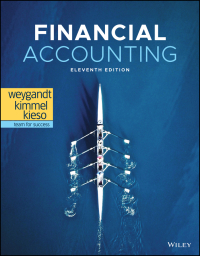Answered step by step
Verified Expert Solution
Question
1 Approved Answer
Need answers in EXCEL Formula Format (ex: =SUM(B13,B14) for each yellow highlighted cell IMPORTANT Need answers in EXCEL Formula Format (ex: =SUM(B13,B14) for each yellow
Need answers in EXCEL Formula Format (ex: =SUM(B13,B14) for each yellow highlighted cell





IMPORTANT
Need answers in EXCEL Formula Format (ex: =SUM(B13,B14) for each yellow highlighted cell, thank you in advance.
Hayword, Inc. uses weighted average costing and has two departments and has provided data related to its mixing department for the month of July. The Controller has asked you prepare a cost reconciliation report and provide the related computations. Use the information included in the Excel Simulation and the Excel functions described below to complete the task. Cell Reference: Allows you to refer to data from another cell in the worksheet. From the Excel Simulation below, if in a blank cell, "=B5" was entered, the formula would output the result from cell B5, or 300 in this example. Basic Math functions: Allows you to use the basic math symbols to perform mathematical functions. You can use the following keys: + (plus sign to add),- (minus sign to subtract), * (asterisk sign to multiply), and / (forward slash to divide). From the Excel Simulation below, if in a blank cell "=B9+B10" was entered, the formula would add the values from those cells and output the result, or 17,250 In this example. If using the other math symbols the result would output an appropriate answer for its function. SUM function: Allows you to refer to multiple cells and adds all the values. You can add Individual cell references or ranges to utilize this function. From the Excel Simulation below, if in a blank cell" =SUM(B13,B14)" was entered, the formula would output the result of adding those two separate cells, or 737,320 In this example. Similarly, if in a blank cell "=SUM(B13:B14)" was entered, the formula would output the same result of adding those cells, except they are expressed as a range in the formula, and the result would be 737,320 in this example. ? X Process Costing using the Weighted-Average Method - Excel PAGE LAYOUT FORMULAS DATA REVIEW VIEW - Sign In FILE HOME INSERT Paste BI U A Cells Editing Alignment Number Conditional Format as Cell Formatting Table Styles Styles Clipboard Font B21 Hayword, Inc. uses weighted average costing and has two departments - mixing and packaging. 2 The following information relates to work in the mixing department for the month of July: 300 60% 40% 4 Work in process, July 1: Units in process 6 Percent completed with respect to materials 7 Percent completed with respect to conversion 8 Cost in the beginning inventory: Materials cost Conversion cost 11 Units started into production during the period 12 Costs added to production during the period: Materials cost | 14 Conversion cost $10,500 $6,750 6,200 $330,912 $406,408 $406,408 14 Conversion cost 15 Work in process, July 31: 16 Units in process 17 Percent completed with respect to materials 18 Percent completed with respect to conversion 450 40% 30% 20 Use the data to answer the following. Conversion 22 1. Compute equivalent units. Mixing Department Equivalent Units of Production Materials 26 Units transferred to the next department 27 Ending work in process: 28 Materials Conversion 30 Equivalent units of production 32 2. Compute cost per equivalent unit. Mixing Department Cost per Equivalent Unit Materials 36 Cost of beginning work in process ... Sheet1 ... + Conversion Conversion 22 1. Compute equivalent units. Mixing Department Equivalent Units of Production Materials 26 Units transferred to the next department 27 Ending work in process: 28 Materials 29 Conversion 30 Equivalent units of production Conversion 32 2. Compute cost per equivalent unit. Mixing Department Cost per Equivalent Unit Materials 36 Cost of beginning work in process 37 Cost added during the period 38 Total cost 39 Equivalent units of production 40 Cost per equivalent unit 42 3. Assign costs. Mixing Department Costs of Ending Work in Process Inventory and the Units Transferred Out Materials Conversion Total Total Costs of Ending Work in Process Inventory and the Units Transferred Out Materials Conversion 46 Ending work in process inventory: Equivalent units of production 48 Cost per equivalent unit 49 Cost of ending work in process inventory 51 Units completed and transferred out: 52 Units transferred to the next department 53 Cost per equivalent unit 54 Cost of units transferred out 56 4. Prepare reconciliation. Mixing Department Cost Reconciliation 59 Costs to be accounted for: 60 Cost of beginning work in process inventory 61 Costs added to production during the period Total cost to be accounted for 63 Costs accounted for as follows: 64 Cost of ending work in process inventory 65 Cost of units transferred out 66 Total cost accounted for 59 Costs to be accounted for: 60 Cost of beginning work in process inventory 61 Costs added to production during the period Total cost to be accounted for 63 Costs accounted for as follows: Cost of ending work in process inventory Cost of units transferred out Total cost accounted for 64
Step by Step Solution
There are 3 Steps involved in it
Step: 1

Get Instant Access to Expert-Tailored Solutions
See step-by-step solutions with expert insights and AI powered tools for academic success
Step: 2

Step: 3

Ace Your Homework with AI
Get the answers you need in no time with our AI-driven, step-by-step assistance
Get Started


